Why did you start writing at the age you did and not some other point in your life?
1989, Singapore. The only cold room in the building we’d been housed by the RAF. My Dad had just bought a new electric typewriter and I was finally allowed to play with his old one. Aged 8, I sat at it for several minutes and then started to write a story about a spaceship that was burning through the spaces between the stars on its way somewhere new and fleeing something pursuing it. Don’t think I ever finished that story because I didn’t have the experience, funnily enough, to carry it off. I wrote all through my time at school and ten years after that first story was one of only two students to choose the creative writing option as the coursework assignment for my English A-level. I wrote a fantasy novella. Then came University where I was too, er, “occupied” to write, then law school, then a masters and finally working as a Criminal Barrister, which I did for 11 years. I didn’t have the headspace with all the cases I was working, so let my desire to write sit on a back burner. I started the story that became my first novel several times while I was in court waiting for the jury to deliver a verdict with no other work I could do, but I rarely had a chance to do more than just play at it. Until my daughter was born, when I had a chance to reassess life and we moved to Denmark while my wife was pregnant with our son. Then I found all the mental energy I’d been putting into juggling a dozen or more cases at once wasn’t used up and I started writing again. Within that answer there’s another one, which is why I didn’t just focus on writing when it’d been my driving passion since childhood. The answer is my parents advised me to go out and get life experience. They knew it would be hard to “make it” as a writer but they also suggested that whatever I wrote would lack something if I hadn’t done something else with my life first. I’m not sure if their advice was right or not, but it’s worked out now at least!
What’s worse? Snakes in your shirt or spiders in your hair?
Spiders in the hair, though there’s not much of that. Spiders on the old “solar panel”, more like.
What’s the worst way to die?
Slowly, and in great pain. If we’re talking mechanically, then probably from radiation poisoning like poor Hisashi Ouchi. Not a story to google if you’re at all sensitive. Close second would be death by hyena--unlike most predators they don’t kill you before they start to eat. If we’re talking personal worst fear for mode of death, then anything dementia related.
Is there anything left that makes you sleep with the light on?
My kids when they’re sick. Otherwise, I generally find sanctuary in darkness not fear. That said, when I take my dog for a walk in our nearby forest at night and I hear an unexpected noise, I’ll go on full alert. I don’t think those instincts can ever leave us. It is always possible to trigger the fear of the dark part of us, I reckon. If your imagination is engaged strongly enough that is. When I write a psychological horror novel, like when I was writing 3:33 AM, the challenge is in trying to concoct scenarios that make me have to put the light on to go from my study to the bedroom. A few times I felt as if the malevolent presence of Eddie was standing just behind me. That gave me the shiver down the spine feeling I need from a horror story, hopefully I captured that for my brave readers.
What’s more frightening – McDonald’s or Burger King?
McDonalds. I once forgot a cheeseburger in my car while I left it at the airport for a week. The car smelt when I came back, but the cheeseburger still seemed like it hadn’t rotted. “That is not dead which can forever lie…” etc.
What’s a unique murder weapon?
A toilet brush. Then again, I dealt with a real court case where someone had been killed by a carpet once so maybe I should go with that instead. The poor feller was rolled up in it and suffocated.
Have you been banished from England, or are you in hiding?
I was outlawed for a year and a day, m’lud, but then I found I liked these here Viking flatlands. So I stayed.
What are some other genres you’re interested in exploring?
Don’t really think in terms of genre much. A story idea pops into my head and usually some characters related to it and off we go. I can’t see myself ever writing romance, erotica, or really anything YA. Anything else is fair game. See my answer to your last question.
Who’s the best writer you know whose name rhymes with Snallan Scratchelder?
LOL. I think everyone knows who that is! He’s very good by the way. I was particularly impressed by This Thing of Darkness.
What’s the big dream in writing? Sign with a major publishing house? Have a book made into a movie starring Keanu Reeves? Get mobbed by emo girls at a horror con?
I’d probably rather be saluted by some old Goths, LOL. The dream is to be able to write and not worry about anything else, to have people read what I write and “get it”, and to still be writing books when I’m 80. I think given the current state of rampant and irresponsible AI development, the last may be a case of writing for no readership but if that is how it shakes out, I still will be. Much like I’ll still be pretending the noise I make is playing the guitar instead of having a robot pretending to do it for me.
Speaking of Keanu Reeves, who’s deadlier, Michael Myers or John Wick?
Wick’s probably got the higher body count, though neither of them come close to Charlie Sheen’s character from Hot Shot’s Two. In all seriousness, I don’t find either that convincing as a deadly hand-to-hand fighter. Jack Reacher on the other hand… Yes, even with Tom Cruise playing him. They must have found someone who really knew what works IRL to do the fight choreography. That said, I really admire the dedication Keanu Reeves put into the training, and I have no doubt if you know much about gun use, his character is impressive for that side of things.
Should rainbow flying unicorns fart glitter or belch it?
I prefer to imagine them as light-splitting, horned pegasi and seeing them like that, they can do what they want and it’s not for me to tell them otherwise!
I don’t understand how there can be g-forces in space. There’s no resistance. What’s up with that?
Talk about a tough question! With the caveat I am only a third of the way through a Physics degree with the Open University and am not any kind of science teacher or communicator, I’ll give answering it a whirl.
G forces in an atmosphere are linked to air resistance--the greater the air resistance, the stronger the opposing force and thus the higher the g-force during acceleration, deceleration, and manoeuvring. However, the force that causes a change of speed acting on a body is the source of the g-force. When there’s no atmospheric resistance, the g-force experienced is at the lowest it could be for the object or body experiencing the change of speed. Air resistance acts sort of like a force multiplier, but in this sense: the force required to accelerate from 0 to 100 mph in 6 seconds in space is less than the force required to do the same in atmosphere because of the resistance. If you imagine trying to do 0 to 100 mph in 6 seconds in water, you can easily see how much more force would be needed.
Take one more example. Say you have a speargun which you fire in the water, measure the speed of the projectile, do the same in air, and then in a vacuum. The speed of the projectile would be higher in air than in water, and higher in space than either air or water. There’d be other consequences of firing a speargun in space, but enough of the physics lesson. I hope I’ve not got that all too wrong!
How do you handle the limitations of tropes. Haunted houses, for instance, routinely do certain things. It’s expected. But then, after a while, haunted house stories become predictable. How do you fight that?
Subversion of them, I suppose. For the most part I don’t really think about it while I’m writing. A situation evolves on the page and I try to scare or thrill myself. That probably leads towards a trope as often as away from one. Saffron’s house in 3:33 AM might be considered haunted at one point, save it’s not the house, it’s her. I remembered things that creeped me out as a child and put myself in that same headspace and explored it from there. I use a mirror scene--what might be considered a classic trope of the genre--but since the focus was on the character’s inner struggle it wasn’t about something being behind her. This wasn’t a conscious decision to avoid or subvert the trope, however.
With my latest release, Cold Sleep, I was acutely aware of two possible comparisons to existing concepts which I’ll skirt around to avoid spoilers. The key difference with the threat is that it remains human, that the people who become part of the threat are aware and still screaming inside to be free but cannot escape the fate that’s taken them. So for me, I made the element of terror one of a sort of existential kind, more akin to the denouement of the classic Harlan Ellison story I Have No Mouth and I Must Scream than the more obvious threat to the characters of death and dismemberment.
Ultimately, I don’t think tropes matter that much and we get too precious about them. Sometimes the characters demand you go in one direction and it is the one that makes sense and works. If that falls into being a trope, so what? If they lead you away from a trope also great. Whatever serves the characters, the plot, and the story best is what we should write.
What’s the Dutch equivalent of Taco Tuesday?
No idea, but maybe you mean Danish? Before I fell for a Dane, I didn’t know the difference between Denmark and the Netherlands either. Partly because I’m a mediocre student of geography, and partly because paying little attention to continental Europe is a bad habit of British culture. Here there’s something called “Fredag slik” which means Friday sweets, something the kids get in the evening to celebrate the weekend. Otherwise, I don’t really know. Of course, being British, my thoughts immediately go to “Thirsty Thursday” but they don’t really have pubs here so that part of my culture is lost to me.
What’s your go-to adult beverage?
Being extremely adult, then tea or coffee. If we’re talking booze then whisky or whiskey, I don’t mind. That said, I was at a Rammstein concert two nights ago and vodka redbull seemed to be the weapon of choice--what a mistake!
Some writers write to music; others prefer silence. I like the weeping of small children. What’s your preference?
Depends on what I’m writing. Some scenes just need quiet to be able to get in the right headspace, others need music. My favourite place to write is outside in the sunshine in my back garden, so sometimes I enjoy the sounds of outside. I probably listen to music more often than not when writing a first draft but then edit in silence. In 3:33 AM, one of the POV characters is a rock/metal guitarist, so I spent a lot of time writing his scenes listening to those genres. In my as yet unpublished fourth novel, working title Going Under, set in the 80s and hopping between the US and Japan, the MC listens to a lot of rap, and so did I. When he was in certain parts of Japan, I listened to a lot of Japanese music, mostly classical but also some of the pop of the era when he was in Tokyo, for example. The title itself reflects the character’s favourite rap song, The Message by Grandmaster Flash & the Furious Five.
Have we reached peak gore?
Ah, yes and no. There needs to be consequences for actions within a story. Within horror, you can only go so far with the psychological elements. Take the films Alien and The Thing. Both work quite differently in terms of playing on the different psychological strings of horror. One being more the fear of the beast with sharp teeth lurking in the shadows, the other being our fear of other people. Both rely on graphic body horror to make sure the viewer has a handle on what the consequences are, but the purpose of the gore is to make the shiver down your spine more effective. Alien is more restrained, save for the chestburster scene, and hence the xenomorph XX121 is more terrifying for how little we see of it. The Thing is never the same creature twice and thus let’s our imagination run wild. It’s more terrifying for the danger it could be anyone and could infect you with a droplet of blood, or a single cell in your drink. Where gore becomes the means and the end, it doesn’t work for me. The problem is, the more of it you see, the more anesthetized to it you become. When it’s the gore that gives you the dopamine release, you’re in a cycle where you have to have more of it to appreciate the film or book. Ultimately, for me I’ve seen real world gore from the cases I used to work--the real life axe murder being a prime example. When you’ve had to attend an autopsy, you realise it’s not the sight of gore that’s the source of horror, it’s the smell.
What’s your favorite war (from a historical perspective) and why do you like it?
Hard to have a favorite, they’re all so good. In all seriousness, they’re a lesson to us of what happens when we allow division to arise between groups of people and forget to talk to each other. When we allow remorseless, psychopathic leaders to take over our societal consciences and react with our most primitive emotions instead of the coolness and refinement of our evolved selves. No war fails to deliver on our very human capacity for inflicting suffering on each other, but the Second World War reveals the depths to which we can sink. No other animal even comes close to our capacity for doing evil to our own. To that extent, it is the best mirror for ourselves and the war we can learn the most from.
In what room of the house is one most likely to have a paranormal experience?
Wherever you spend the most time sleeping, with wherever there’s a mirror and low light coming in a close second. Why? Because the paranormal is all psychological. In our bedrooms we are in a place where we are supposed to be the safest, and yet we cannot keep out the source of fear, our own minds. Add to that the frequency of nightmares and it’s a place where imagination can turn shadows on the wall into ghosts. The mirror thing is simply pareidolia--in low light looking at your own face, when your brain can’t see all of the details and has to start trying to fill in the missing pieces you can end up looking at a stranger in the glass. Not something I’d advise unless you’re mentally resilient enough to be able to rationalize it, but it’s another example of a real “paranormal” experience. In other words, I’m a bit more like Scully than Mulder, though like him I really do want to believe. I just need evidence…
What are you working on currently, and when can we expect to read it?
Second draft of another SF novel, called Diligence. It’s in the same setting as Cold Sleep but has no linked characters, save the corporations which are almost characters in their own right. Where Cold Sleep is Hard SF Horror, Diligence is more of a Hard SF thriller with lots of intrigue on board a military ship doing a patrol of a cluster of stars. The main character is the ship’s bosun and who he really is and why he’s on the ship is the core plot. Probably more character driven than Cold Sleep. That’ll be finished this year. I won’t predict a release date as so far I’ve been way off whenever I have!
I have another novel pretty much ready to go between now and then, Going Under as mentioned above--that’s a story which is more suspense than horror but deals with some supernatural elements around a series of suicides. Dark material indeed.
Finally, I have an alternative legal drama about two-thirds done. It may never see light of day given where the story’s taken me. The MC is a Criminal Barrister who has more in common with Patrick Bateman than Rumpole of the Bailey or other “legal heroes”. It’s turning out to be very dark and there’s a risk some may think I hold the same horrible opinions and condone the vile actions of the MC, much as how less canny critics saw Palahniuk’s Fight Club or Easton-Ellis’s American Psycho. The idea Palahniuk was glorifying fascism in the case of Fight Club when he was writing a warning against how easily it could take over disaffected and directionless men is absurd but you’ll hear it far too often. I’m not sure a book making a point about the dreadful kind of people who can get into positions of authority is worth potentially torpedoing my writing career over. Something I’ll have to struggle with. Certainly, it’s been the hardest thing to write of anything I’ve tried my hand at. The MC disgusts me, and accessing the part of me that understands that behaviour is a deep dive back into the worst parts of my legal career, dealing with the most unpleasant people I’ve ever met. I reassure myself that when I’m writing some of his more depraved scenes, it’s based on things that have happened that I know about, rather than things which I’ve just spun purely from my own imagination, as is the case with the rest of my fiction.
If you'd like to know more, check out his Amazon page. Or follow him on Twitter, @LukeETHindmarsh
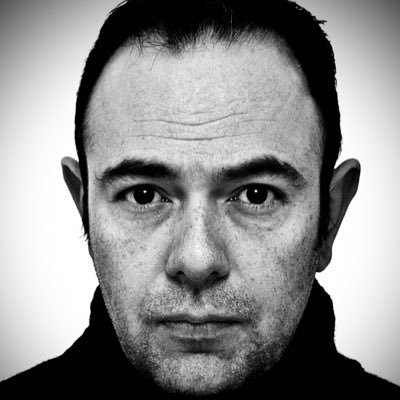
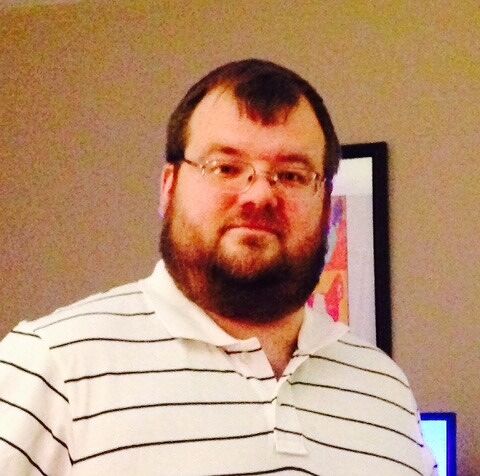
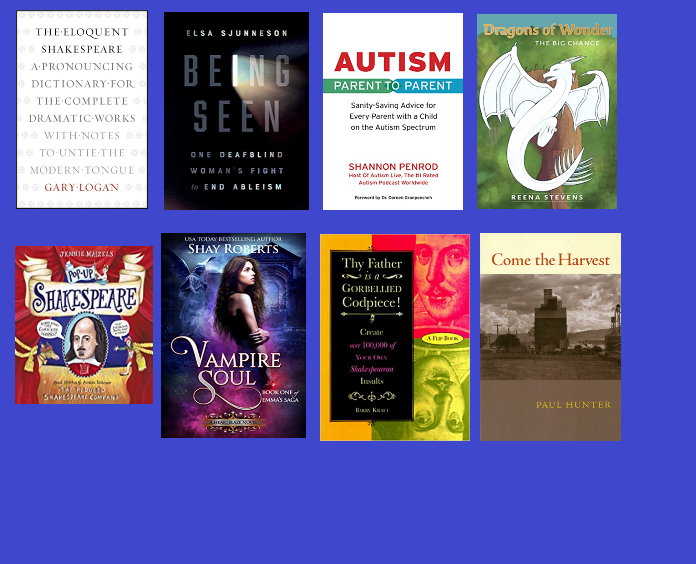
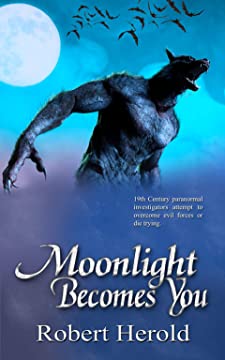
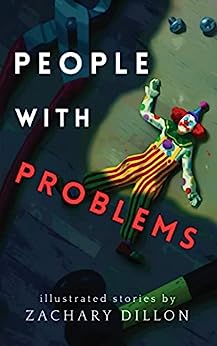
 RSS Feed
RSS Feed